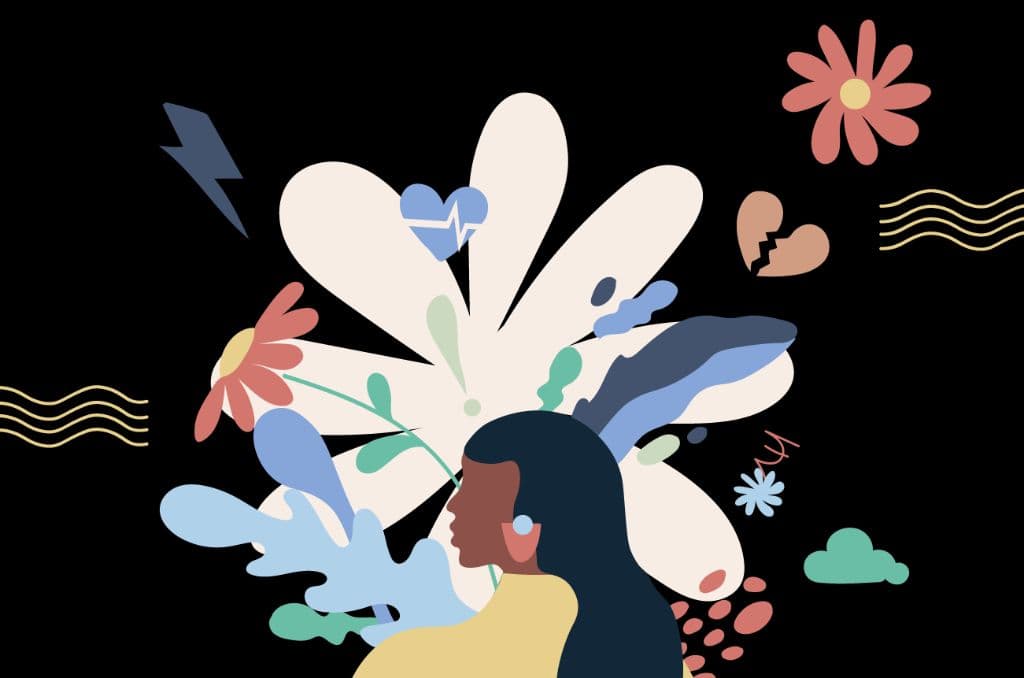This article has been compiled by Vaibhavi Kodnani, a content writer at Proactive For Her.
Friendship is a relationship or mutual bond that we share with various people. It is one of the few relationships based on choice because we get to choose our friends and vice versa. It allows us to be our true selves and share our lives with them without the fear of being judged. Even though there are different kinds of friendships, we learn and grow together with each one. Hence, friendships are an important part of everyone’s life.
However, no relationship is harmonious throughout. Similar to a romantic relationship, there can be phases of conflict or other difficulties in friendship too. If it escalates to an irreparable state, it could also lead to a breakup.
Friendship breakups could happen due to various reasons
Every friendship is unique in its way, so the reasons for the parting too can be different. But the most common reasons for the fallout are stated below.
Conflict
There could be times when you and your friend do not comply with each other. It is very usual because no two people are alike. But if the rising differences in opinions, frequent arguments or misunderstandings have overtaken your friendship, it could eventually lead to a breakup.
Growing apart
With age and circumstances, you may not be the same person as you were at some point in life. Even your friend could grow into a different person. It could also lead to separation as you both do not share the same equation anymore as it was when you both became friends.
Toxicity
Being in a toxic friendship is not a great feeling. If your friendship has traits of toxicity, you may feel the need to end it for your sake.
Your friendship may be toxic if your friend:
- Does not take any efforts in the friendship
- Is never there for you when you need them
- Only talks about themself
- Is passive-aggressive
- Makes fun of you in front of others
- Compares you to other people
- Is insecure about the friendship
- Often puts up the unhealthy competition with you
- Talks negative all the time
- Is too dramatic
- Compels you to behave a certain way
- Threatens you or manipulates you
- Does not respect your boundaries
Death
Under unforeseen circumstances, if your friend passes away, you may undergo similar feelings as a breakup. Suddenly, as they are not a part of your life anymore, you will feel their absence and experience a sense of loss and grief.
Distance
The distance can be created due to various reasons - moving to a different city or hectic work schedules. You may not have enough time to catch up, and the friendship could fade away.
How does it feel after a friendship breakup?
After the breakup, you may feel like you’ve lost an important person in your life. You may experience feelings of loss, grief, sadness and heartbreak. You also lose parts of yourself with that friendship.
Various difficult feelings and thoughts can arise depending on what happened between the two of you. The many repercussions on you could be:
- Inability to trust anyone
- Going hard on yourself
- Questioning if you are a good friend
- Episodes of self-doubt
- Feeling extreme hurt
- Difficulty in creating a similar bond with somebody
- Not wanting to go through this experience again
How to cope with a friendship breakup?
Everyone will have different ways to cope with it. But here are some healthy ways to approach the situation.
Accept the situation
After the breakup, it is often hard to accept the truth. Years of friendship ending in seconds can be quite painful and distressing. But living in denial will only make things worse for you. It will prevent you from addressing your feelings to heal yourself and recuperate from the hurt. Therefore, it is crucial to acknowledge and accept the reality, however harsh it may be.
Address your feelings
Whatever the reason is for the breakup, there will be feelings of sadness and grief involved. Even though these thoughts and feelings are difficult to experience, you must not suppress them as they leave you with unresolved emotions. It can even seriously impact your health. Instead, accept that it is normal to feel that way and focus on healthily tackling those feelings.
Don’t be hard on yourself
You may notice episodes of self-blame or self-doubt after the breakup with your friend. You could undergo immense physical and mental stress by harbouring these negative feelings against yourself. Instead of doing that, you must treat yourself with kindness. No one needs you more than yourself!
Practise self-care
It is crucial to give yourself the time and space to heal the wounds. Don't force yourself to forget what happened, as that will only remind you more of it again. Engage in activities that help you take your mind off the negative thoughts, feelings and memories. Mindful activities such as yoga and meditation are powerful healing tools. Read a book, take up a new hobby, exercise, spend time with your family and other friends and most importantly, practice positive self-talk.
Find out what went wrong
With every experience, there is something new to learn. Do not let go of it without understanding the situation completely. Try to analyse what went wrong and the reasons behind it. Always remember that everything happens for a reason - which you may not understand immediately, or even if you do, you may be in denial. Whether it was your fault or not, introspection will teach you a thing or two. You can even discuss it with other close friends to understand the situation better and improve yourself to prevent it from happening again.
Apologise if it was your fault
After introspection, if you conclude that it was your fault, then apologise to your friend. They may even forgive you. However, if they do not want to talk to you, respect their boundaries and retract.
Forgive yourself
You may be at fault. But holding on to your mistakes and blaming yourself forever is not going to help. Forgiving yourself will not only accelerate your healing process but also help you dissociate hatred, pain and sorrow with those memories.
Talk to a therapist
Generally, you can resolve friendship breakups by yourself. But sometimes, that is not possible, and there could be various reasons for it. If it is difficult for you to cope with the breakup, if it is interrupting your daily schedule, and negative emotions are taking over, then it is best to talk to a therapist. They can ease the process for you and help you deal with the insecurities, feelings of self-doubt, self-blame, hatred and more.
What are some unhealthy things you should avoid doing after a breakup?
Don’t nag
Do not leave numerous missed calls and messages if your friend does not want to talk to you. It is okay to want to go back but not by breaching the other person’s personal space and boundaries. Another unhealthy way of coping or drawing attention is by showing passive aggression like putting up status or uploading something about them on social media platforms. It only complicates the situation further.
Don’t stalk
You may constantly feel the urge to track your friend’s life through social media or ask other friends. This habit can cause more sadness and damage to you.
Don’t gossip
Sharing your feelings with other people is fine, but gossiping about your friend, shaming them or bad-mouthing them is not. By disseminating hateful thoughts, you are only going to attract more negativity. You may feel it is helping you, but it will only cause more guilt and sadness when you are by yourself later.
What should you do in the following situations?
Friendship breakups can put you in many difficult situations, feelings and emotions that you may not be ready for. Below are some possible situations that could arise and ways to tackle them.
If you both have mutual friends
Firstly, figure out if your mutual friendships can exist without this one friend you broke up with. If yes, then continue to be friends with them without worrying too much. Just because you broke up with one friend does not mean you have to part ways with other friends too.
But never ask your mutual friends to pick sides. You cannot expect your friends to undergo a breakup with that friend along with you. If you and your friend share the same friend circle and are bound to see each other during common events, figure out ways to make that interaction stable.
If you want to contact your friend again
You could try to contact them again if you feel like it. But if your friend is not willing to comply, you must not force it. You can let them know that you are open to having a conversation if they want to or whenever they are ready. Don’t cross their boundaries by constantly nagging them to talk to you.
If you meet that friend out of the blue
It can trigger a lot of different emotions if such a situation arises. Assuming that you are not prepared for it, you may freeze, go blank. Your reactions will also vary depending on various factors such as how and when your friendship ended, what you feel about it and more.
Some of you may not experience any of the extreme reactions and would want to talk to them. Depending on when and where you meet your friend, you will understand if you should approach them. If they seem uncomfortable talking to you, then drop the idea.
If you are missing your friend too much
It is normal to miss your friend. You cannot erase their memories from your mind at one go. Allow yourself to experience it because missing them is also a part of grieving their loss. Do not try to run away from it because that does not help to process it.
If you never got a proper closure
Sometimes, you may never get a proper closure, or your friend may ghost you, but you can still make meaning out what happened. You do not have to necessarily paint a dark picture about them or get insecure about yourself. If you do not accept the situation as it is, it can affect your other interpersonal relationships too.
Bottom line
Friendship breakups are real, and they are undoubtedly painful. You may not be able to reverse the situation, but you can analyse what went wrong to improve and strengthen your other friendships. Remember to forgive both yourself and your friend and remember them for the good memories you shared.
Disclaimer: This information is provided for educational purposes and should not be construed as medical advice. Please consult with your healthcare practitioners before undertaking any changes in your diet or adding supplements.
ProactiveForHer is a digital clinic for women, offering accessible, personalized, and confidential healthcare solutions. We offer products and services for out-patient health concerns of Indian women, across their lifetime - from puberty to pregnancy to menopause. To know more on the sexual and reproductive health of women, visit https://www.proactiveforher.com/

